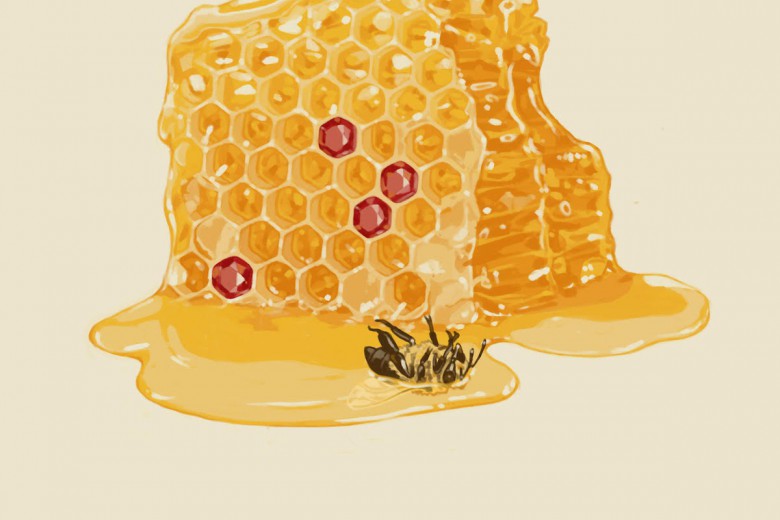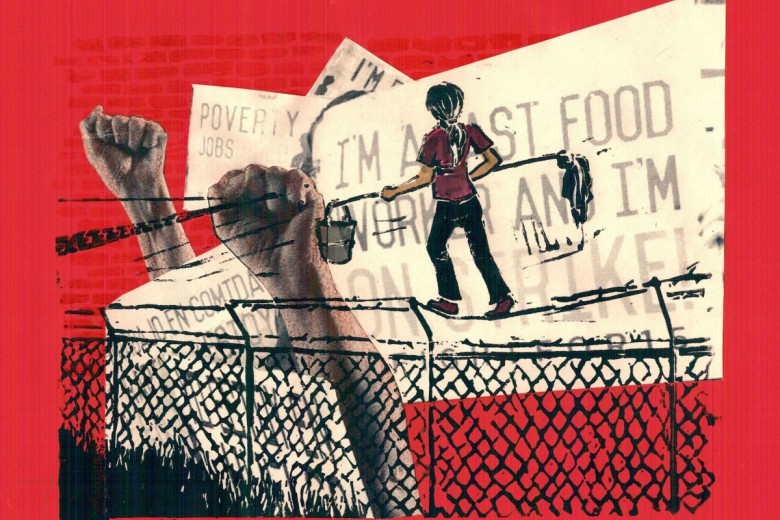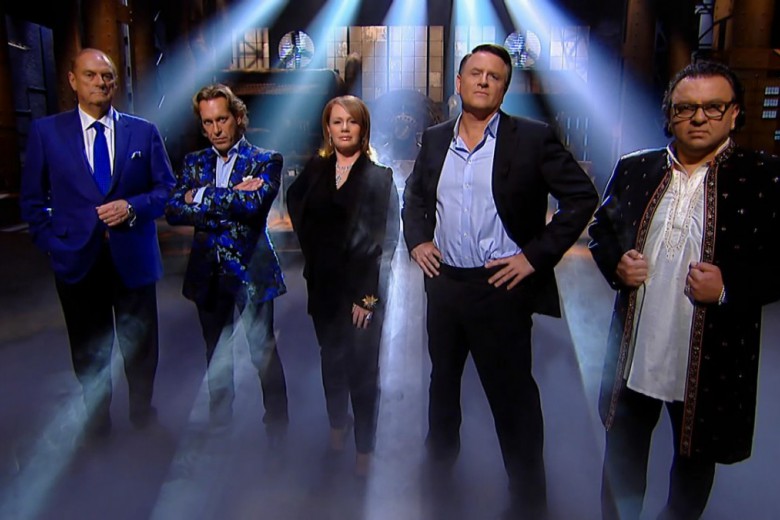
In the summer of 2009, on a humdrum Edmonton afternoon, three of us went out for cupcakes. Fellow sociologists, knitting buddies and feminist reading group pals, we found ourselves at Fuss, a cupcake, gelato and coffee shop all rolled into one. It was there that we began to ponder the phenomenon of cupcake shops that seem to be popping up everywhere.
Cupcake shops are proliferating wildly, marketed to adults but with a frosting of childhood nostalgia. Sweet, pretty desserts adorned with opulent icing, cupcakes are the pinnacle of childhood treats, and embody the “sugar and spice and everything nice” notion of girliness. But rather than just representing a sweet indulgence for a sugar-addicted culture, does the nostalgia fuelling the cupcakes craze signal a broad cultural yearning for another time and another way of being — the seemingly glamorous Mad Men life when women hand-crafted little cakes for every single one of their bambinos? As we licked the ganache off our lips and the sugar crash hit, the question sent a twinge through our feminist political sensibilities. We asked ourselves: was this trend sexist and infantilizing? Or is it a case of third wave feminist entrepreneurs reclaiming and celebrating kitchen craftiness?
Nostalgicakes
According to Heather Holbrook of Isobel’s Cookies and Cupcakes and Claudia McGuinness of the Cupcake Lounge, both in Ottawa, cupcakes are all the rage for three key reasons: nostalgia for home-baked goods, the Sex and the City-inspired hip factor, and the near guilt-free indulgence they represent for North America’s chronically dieting population (cupcakes are small, after all). Pre-feminist nostalgia, pop-feminist glitz and post-prandial guilt seem to be the perfect ingredients for the female-focused micro-economy behind the cupcake fad.
And indeed, in the last few years, cupcakes and cupcake shops — especially ones oriented towards women — have proliferated across Canada, North America and beyond. (Check out www.cupcakestakethecake.blogspot.com for a list of international cupcakeries, which can now be found on every continent except Antarctica.)
Edmonton’s The Cupcake Shoppe invokes nostalgia explicitly with its slogan: “Nostalgia has never tasted so good!” Since cupcakeries are a new phenomenon, clearly the shops themselves are not the source of nostalgia. Rather, they rely on a nostalgia evoked by cupcakes themselves. It seems to us that this nostalgia revolves around two things: the association of cupcakes with an idealized childhood, and the consumption of cupcakes as an expression of a particular, infantilized and domesticated femininity.
The taste of childhood past
Cupcakes are diminutive, delectable, and individually made and decorated. They evoke the nostalgia both of an earlier era and of childhood itself. Take a peek at the many e-cupcakeries on the web or walk into your favourite local shop and a theme of cozy 1950s domesticity, elegant Victorian charm or rustic quaintness pervades. The ornamented, dainty morsels simultaneously call to mind the luxury and the simplicity of a storybook past in which the everyday world was beautiful and manageable, with enough time to pay attention to small details, no matter how fussy or frivolous.
McGuinness agreed that cupcakes remind us of another era: “I think it’s from the 1960s … when moms stayed home and made their children’s birthday cakes.” She continued to reminisce: “I grew up in the 1960s, when mom stayed home. My mom didn’t go to work until I was 13.” Cupcakes also inspire nostalgia of a happy childhood, then. They remind us of caring relationships, special occasions or treasured memories of a childhood home, which were all marked by cupcakes — or, more precisely, which could have been marked by cupcakes.
For some, cupcakes call to mind specific childhood memories. Cupcakepreneurs often declare that their idea of making a business of cupcakes is rooted in their own childhood memories. Both Holbrook and McGuinness fondly remember baking cupcakes with their mothers. “I think it just brings back — anything that’s baked right brings back — what your mom used to do” Holbrook says.
But for most people, this cupcake nostalgia is premised on an ideal, if not always a lived reality, of stay-at-home moms indulging their children in home-baked goods. Whether or not the average cupcake consumer has such memories, there seems to be a sort of collective memory or wish attached to cupcakes, revolving around effortless fun and celebration, being cared for, comforted, and indulged: the perfect childhood that could have been.
“For my princess”
Perhaps cupcakes are a reminder of being a kid, or an excuse to be childlike, but in their contemporary guise as a pop culture phenomenon, cupcakes predominantly seem to be made to elicit a very particular kind of childhood nostalgia, namely a yearning for an indulged, pampered girlhood spent baking small things in light-bulb ovens, presiding over tea parties and lemonade stands, and playing dress-up. And this nostalgia is targeted at women.
Though cupcakepreneurs will point out that men make up a significant part of their clientele, cupcakes are girly. High-end girly, gourmet girly, whichever way you bite into it, they are girly: sweet swirls of pink on pink in a pleated, wax-paper apron.
When we asked Elizabeth Routly, co-owner (with Julie Thompson) of the Ottawa Cupcakery, which cupcake she would describe as the most masculine, she suggested, “the Rock my Road — it’s our variation on the Rocky Road. It’s a chocolate cupcake filled with caramel and toasted pecans and topped with a marshmallow buttercream.” Nuts, the intense flavour of caramel, and a smoky whiff of marshmallow makes for a manly cake.
Meanwhile, the most popular cupcake the Cupcakery sells is the “Fairy Princess Pink cupcake” which is described as “perfect for your little fairy princess.” But it’s not just for little girls. Routly says she receives many orders for this cupcake from men buying them for their wives or girlfriends, accompanied by gift tags declaring “for my princess.”
In contemporary urban cupcakeries, cupcakes are caught in the in-between world of girls dreaming about future womanhood and women playing the fantasy in reverse, revelling in nostalgic girlhood as an escape from their everyday lives. While men, to a limited extent, also indulge in the delicious trend, it is primarily women who make a business of cupcakes and other women and children who consume the cupcakes they sell.
Your mama’s cupcakes
As the tag line for the Ottawa Cupcakery suggests, the new wave of cupcakes are “not your mama’s cupcakes.” They may hearken back to your mama’s (or someone’s mama’s) cupcakes. This is largely their appeal: they’re kitschy, nostalgic, sweet and carefree, like childhood birthday parties. However, these cupcakes weren’t squeezed through the strictures of 1960s gender norms — they are the fruits of third-wave, do-it-yourself feminist practice.
Contemporary cupcake bakers see their enterprise as participating in a feminist appropriation of traditionally feminine (domestic) skills and crafts in order to honour and respect women’s heritage while simultaneously carving out new modes of self-expression and self-sufficiency for women. Auntie Loo’s Treats, a vegan bakery in Ottawa, epitomizes a feminist spirit of DIY production. For Amanda Lunan (aka Auntie Loo), owning and operating a bakery is a perfect moment of feminist reclamation:
“I think [it’s] almost empowering to be taking ˜women’s work’ and turning it into a business. For me it’s one of the ultimate feminist things you can do. Baking’s something special that my mom showed me how to do; and I’m proud, and she’s proud. She was running the register on the opening day; everyone was asking, ˜Where’d she learn how to cook?’ And my mom was saying, ˜that was us! We were at home in the kitchen.’”
Auntie Loo’s cupcakes reflect feminist politics both in the woman-owned-and-operated grassroots model of the business and in her choice to use high-quality, vegan ingredients — practices shared by many other cupcakepreneurs with whom we spoke.
In spite of the patriarchal femininity, frothy girliness and fantasy play inherent in much of the imagery that surrounds the contemporary cupcake phenomenon, many cupcakepreneurs take very seriously the politics of cupcakes. Cupcakes are made of food staples that are among the least equitably traded commodities in the world (sugar, milk, flour, chocolate, spices). As such, they participate in a global system of trade that makes many people’s everyday world much less joyful and beautiful. The cupcakepreneurs we spoke with insist upon fairly traded products for their ingredients.
The wrapper
At Fuss, where we initially pondered the relationship between cupcakes and gender, we wondered whether cupcakes were just the latest consumer trend fuelled by nostalgia for a kitschy, idealized mid-century past — a past that was quite stifling for women in North America — and whether the trend might draw a little too heavily on an ideal of infantilized femininity. Maybe cupcakes are to baked goods what Everybody Loves Raymond was to sitcoms: familiar and briefly satisfying, but leaving a bitter aftertaste.
What we found in talking with impassioned and politically aware cupcakepreneurs, however, is a more nuanced picture. McGuinness tells of a time when she made a dozen dark chocolate cupcakes for the 50th birthday of a client’s husband. Each cupcake was topped with a fondant-sculpted Guinness can of beer the size of a child’s thumb: little tiny fondant beers, diminutive and sweet, yet dark, frothy and suggestive of that most masculine of ales. In the great, endless menu of cupcake flavours and combinations being developed by cupcakepreneurs, it seems that while some sell cupcakes like so many other commodities of prepackaged nostalgia, new room is also being created for umpteen new relationships between our gendered selves and the food we eat.






